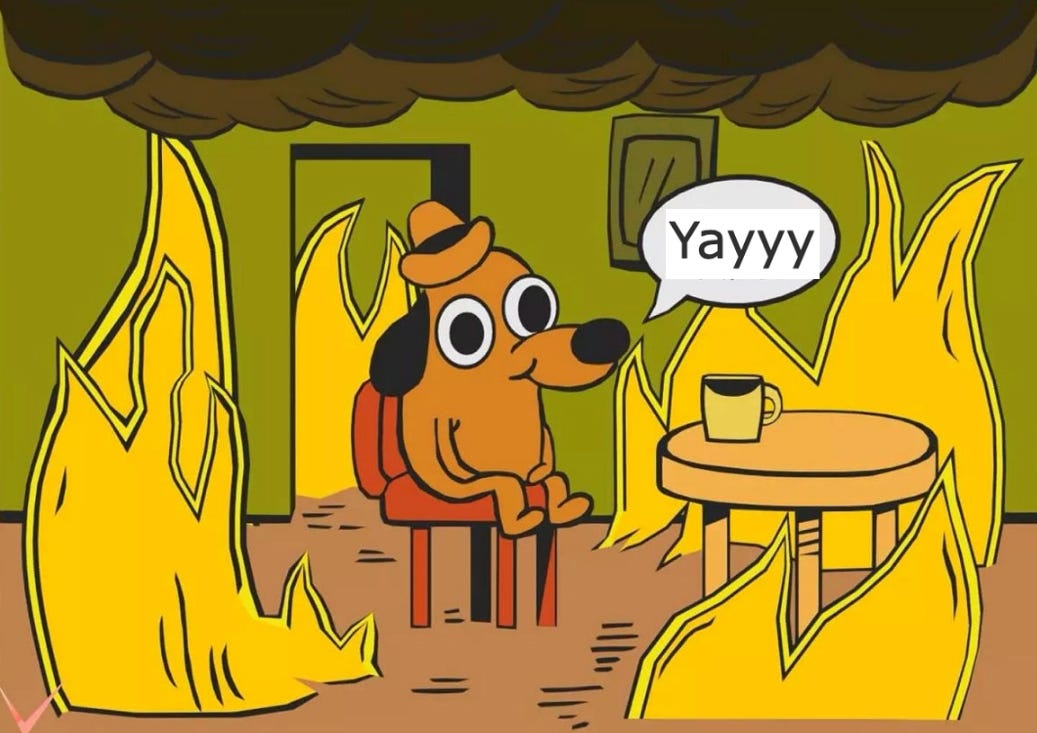Depression Is a Political Necessity
"Is anyone else feeling insane right now??" Good!
You may have noticed the world is very bad right now. And it gets to you. There are the more obvious things—the police repression of protest, for example. It’s hard to stomach seeing so much violence perpetrated by our government on a daily basis. But it’s also the day-to-day things: The neglect you can feel when your train is always delayed because there’s never enough money for public transit; the frustration you can feel or when your car drives over yet another pothole that the government won’t get rid of because the money’s too tied up in war; the unnecessary anxiety created by what should be mundane tasks like going to the doctor, which are instead infuriating because the architecture of our society makes these tasks as byzantine and as unpleasant as possible (have you noticed that you can’t even get a same-day appointment at the doctor if you’re sick anymore???).
All of this can make us feel crazy. And, with nowhere for those feelings of craziness and rage and despair to go, they often instead bounce around in us, manifesting in ennui and/or anxiety and/or depression. It’s a refrain you hear often: given the state of the world, how can one not be depressed right now?
Which presents a problem: if everyone is depressed (and, really, statistically, like, everyone is depressed these days), how do we go about the task of changing the world to be less depressing? How do we carry out the emotionally taxing work of fixing society, of pushing for a government that will fix a god damn pothole, if we are too overwhelmed to even live our own lives? If we have no emotional space for ourselves, how can we possibly find emotional space for the rest of the world? It seems we’re in a catch-22: as the world becomes ever-worse, our mental states become ever-more incapable of addressing that badness. We are simply too overwhelmed.


